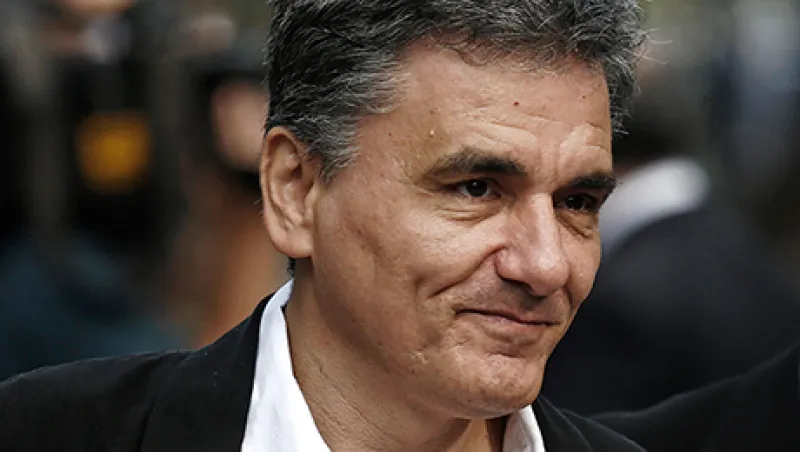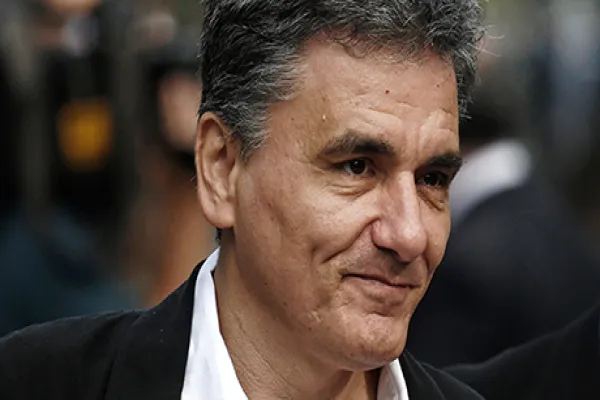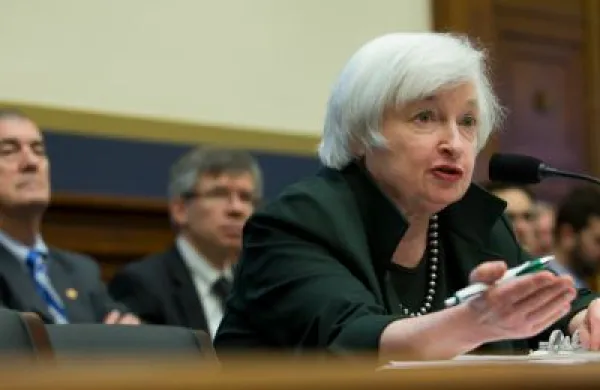After the storm, the calm? Last July, wrapping up six months of theatrical fulmination against Greece’s creditors, leather-jacketed Yanis Varoufakis climbed aboard his motorcycle and left the Greek Finance Ministry. Varoufakis had polarized opinion during his brief spell as Finance minister. He’d insisted that reforms pushed by the so-called troika — the European Central Bank, the European Union and the International Monetary Fund — would cripple Greece’s economy, and that debt relief was essential to the nation’s economic viability.
His replacement, fellow academic Euclid Tsakalotos, is trying a more diplomatic approach, but reform and debt remain as controversial as ever. January’s World Economic Forum in Davos, Switzerland, brought mixed news for Tsakalotos, with the IMF saying it wouldn’t back a new bailout without debt relief — but insisting on more pension cuts than he has proposed.
At first glance the new minister is a very different creature from his predecessor. Though like Varoufakis he eschews a necktie, Tsakalotos, 55, has a reputation for being fastidious, calm and diplomatic; he has quietly started to implement the €86 billion ($93 billion) bailout agreed upon in his first week on the job, including painful reforms that his left-wing Syriza party once rejected. His upbringing abroad — he was educated at St. Paul’s, one of Britain’s most exclusive private schools, and the University of Oxford, where he studied politics, philosophy and economics before earning his doctorate in economics — and his clipped English accent make him an outlier at home but more at ease with the European political elite. This should come in handy as Tsakalotos works to secure relief on Greece’s debt, which stands at 175 percent of gross domestic product.
“In some ways he has done an extremely good job because the mess left by his predecessor both in substantive and presentational terms was horrific,” says Spyros Economides, an associate professor of international relations and European politics at the London School of Economics. “To this extent Tsakalotos has managed to steady the boat in terms of the relationship with Greece’s partners and creditors and is viewed as a more positive presence and interlocutor for the EU, the member states and the IMF.”
In December, Greece narrowly passed a 2016 budget that included spending cuts and tax increases totaling €5.7 billion and privatizations worth almost €2 billion. Tsakalotos, who was previously Greece’s chief negotiator with the troika, contends that his country had little choice but to accept its creditors’ tough measures. But it’s at least better that Syriza implements them, he recently insisted, because the party will use the political space bought to introduce “ radical initiatives in health and education ” and prioritize the fight against tax evasion and corruption. Tsakalotos, who believes the traditional parties of right and left have long ignored these matters, blames the crisis not on Greece’s past profligacy but on neoliberal economics.
For some Greeks, though, Tsakalotos is an avatar for Syriza’s hypocrisy in forcing through creditor demands that it was elected to spurn. Varoufakis may also have been a foreign-educated academic (and a foreign passport holder to boot), but he avoided being tainted in the same manner.
This seems to pain Tsakalotos, who has belonged to Syriza for nearly a decade — Varoufakis was a member only briefly — and heads a hard-left faction of the party. In a December interview with British journalist Paul Mason, he argued that Syriza will have failed unless other “radical” parties come to power in Europe. Without debt relief, he said, the region faces a “Devil’s decade” like the 1930s.
Greece is headed for another year of recession in 2016, even as Germany accuses it of stalling on reforms. “Most probably the economy will continue to muddle through, with a government that fulfills some minimum conditions and the creditors who keep the economy afloat,” says Othon Anastasakis, director of South East European Studies at Oxford: “Tsakalotos is more reliable and trustworthy than Varoufakis but looks rather sad and pathetic because he has to pursue a policy he does not believe in.”
Get more on macro .






